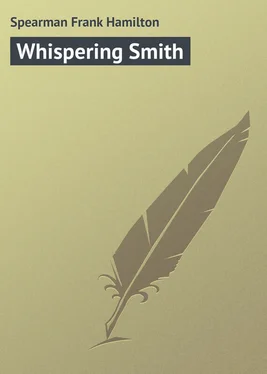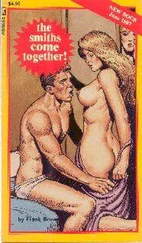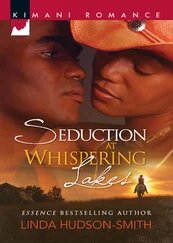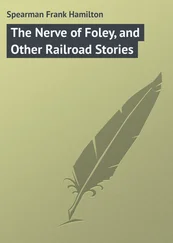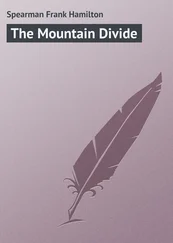Frank Spearman - Whispering Smith
Здесь есть возможность читать онлайн «Frank Spearman - Whispering Smith» — ознакомительный отрывок электронной книги совершенно бесплатно, а после прочтения отрывка купить полную версию. В некоторых случаях можно слушать аудио, скачать через торрент в формате fb2 и присутствует краткое содержание. Жанр: foreign_prose, foreign_adventure, на английском языке. Описание произведения, (предисловие) а так же отзывы посетителей доступны на портале библиотеки ЛибКат.
- Название:Whispering Smith
- Автор:
- Жанр:
- Год:неизвестен
- ISBN:нет данных
- Рейтинг книги:3 / 5. Голосов: 1
-
Избранное:Добавить в избранное
- Отзывы:
-
Ваша оценка:
- 60
- 1
- 2
- 3
- 4
- 5
Whispering Smith: краткое содержание, описание и аннотация
Предлагаем к чтению аннотацию, описание, краткое содержание или предисловие (зависит от того, что написал сам автор книги «Whispering Smith»). Если вы не нашли необходимую информацию о книге — напишите в комментариях, мы постараемся отыскать её.
Whispering Smith — читать онлайн ознакомительный отрывок
Ниже представлен текст книги, разбитый по страницам. Система сохранения места последней прочитанной страницы, позволяет с удобством читать онлайн бесплатно книгу «Whispering Smith», без необходимости каждый раз заново искать на чём Вы остановились. Поставьте закладку, и сможете в любой момент перейти на страницу, на которой закончили чтение.
Интервал:
Закладка:
The prettiest stretch of Crawling Stone Valley lies within twenty miles of Medicine Bend. There it lies widest, and has the pick of water and grass between Medicine Bend and the Mission Mountains. Cattlemen went into the Crawling Stone country before the Indians had wholly left it. The first house in the valley was the Stone Ranch, built by Richard Dunning, and it still stands overlooking the town of Dunning at the junction of the Frenchman Creek with the Crawling Stone. The Frenchman is fed by unfailing springs, and when by summer sun and wind every smaller stream in the middle basin has been licked dry, the Frenchman runs cold and swift between its russet hills. Richard Dunning, being on the border of the Indian country, built for his ranch-house a rambling stone fortress. He had chosen, it afterward proved, the choice spot in the valley, and he stocked it with cattle when yearlings could be picked up in Medicine Bend at ten dollars a head. He got together a great body of valley land when it could be had for the asking, and became the rich man of the Long Range.
The Dunnings were Kentuckians. Richard was a bridge engineer and builder, and under Brodie built some of the first bridges on the mountain division, notably the great wooden bridge at Smoky Creek. Richard brought out his nephew, Lance Dunning. He taught Lance bridge-building, and Murray Sinclair, who began as a cowboy on the Stone Ranch, learned bridge-building from Richard Dunning. The Dunnings both came West, though at different times, as young men and unmarried, and, as far as Western women were concerned, might always have remained so. But a Kentucky cousin, Betty, one of the Fairfield Dunnings, related to Richard within the sixth or eighth degree, came to the mountains for her health. Betty’s mother had brought Richard up as a boy, and Betty, when he left Fairfield, was a baby. But Dick–as they knew him at home–and the mother wrote back and forth, and he persuaded her to send Betty out for a trip, promising he would send her back in a year a well woman.
Betty came with only her colored maid, old Puss Dunning, who had taken her from the nurse’s arms when she was born and taken care of her ever since. The two–the tall Kentucky girl and the bent mammy–arrived at the Stone Ranch one day in June, and Richard, done then with bridges and looking after his ranch interests, had already fallen violently in love with Betty. She was delicate, but, if those in Medicine Bend who remembered her said true, a lovely creature. Remaining in the mountains was the last thing Betty had ever thought of, but no one, man or woman, could withstand Dick Dunning. She fell quite in love with him the first time she set eyes on him in Medicine Bend, for he was very handsome in the saddle, and Betty was fairly wild about horses. So Dick Dunning wooed a fond mistress and married her and buried her, and all within hardly more than a year.
But in that year they were very happy, never two happier, and when she slept away her suffering she left him, as a legacy, a tiny baby girl. Puss brought the mite of a creature in its swaddling-clothes to the sick mother,–very, very sick then,–and poor Betty turned her dark eyes on it, kissed it, looked at her husband and whispered “Dicksie,” and died. Dicksie had been Betty’s pet name for her mountain lover, so the father said the child’s name should be Dicksie and nothing else; and his heart broke and soon he died. Nothing else, storm or flood, death or disaster, had ever moved Dick Dunning; then a single blow killed him. He rode once in a while over the ranch, a great tract by that time of twenty thousand acres, all in one body, all under fence, up and down both sides of the big river, in part irrigated, swarming with cattle–none of it stirred Dick! and with little Dicksie in his arms he slept away his suffering.
So Dicksie was left, as her mother had been, to Puss, while Lance looked after the ranch, swore at the price of cattle, and played cards at Medicine Bend. At ten, Dicksie, as thoroughly spoiled as a pet baby could be by a fool mammy, a fond cousin, and a galaxy of devoted cowboys, was sent, in spite of crying and flinging, to a far-away convent–her father had planned everything–where in many tears she learned that there were other things in the world besides cattle and mountains and sunshine and tall, broad-hatted horsemen to swing from their stirrups and pick her hat from the ground–just to see little Dicksie laugh–when they swooped past the house to the corrals. When she came back from Kentucky, her grandmother dead and her schooldays finished, all the land she could see in the valley was hers, and all the living creatures in the fields. It seemed perfectly natural, because since childhood even the distant mountains and their snows had been Dicksie’s.
CHAPTER VI
THE FINAL APPEAL
Sinclair’s discharge was a matter of comment for the whole country, from the ranch-houses to the ranges. For a time Sinclair himself refused utterly to believe that McCloud could keep him off the division. His determination to get back led him to carry his appeal to the highest quarters, to Glover and to Bucks himself. But Sinclair, able as he was, had passed the limit of endurance and had long been marked for an accounting. He had been a railroad man to whom the West spelled license, and, while a valuable man, had long been a source of demoralization to the forces of the division. In the railroad life clearly defined plans are often too deeply laid to fathom, and it was impossible for even so acute a man as Sinclair to realize that he was not the victim of an accident, but that he must look to his own record for the real explanation of his undoing. He was not the only man to suffer in the shake-out that took place under the new superintendent; but he seemed the only one unable to realize that Bucks, patient and long-suffering, had put McCloud into the mountain saddle expressly to deal with cases such as his. In the West sympathy is quick but not always discerning. Medicine Bend took Sinclair’s grievance as its own. No other man in the service had Sinclair’s following, and within a week petitions were being circulated through the town not asking merely but calling for his reinstatement. The sporting element of the community to a man were behind Sinclair because he was a sport; the range men were with him because his growing ranch on the Frenchman made him one of them; his own men were with him because he was a far-seeing pirate and divided liberally. Among the railroad men, too, he had much sympathy. Sinclair had always been lavish with presents; brides were remembered by Sinclair, and babies were not forgotten. He could sit up all night with a railroad man that had been hurt, and he could play poker all night with one that was not afraid of getting hurt. In his way, he was a division autocrat, whose vices were varnished by virtues such as these. His hold on the people was so strong that they could not believe the company would not reinstate him. In spite of the appointment of his successor, Phil Hailey, a mountain boy and the son of an old-time bridge foreman, rumor assigned again and again definite dates for Sinclair’s return to work; but the dates never materialized. The bridge machinery of the big division moved on in even rhythm. A final and determined appeal from the deposed autocrat for a hearing at last brought Glover and Morris Blood, the general manager, to Medicine Bend for a final conference. Callahan too was there with his pipe, and they talked quietly with Sinclair–reminded him of how often he had been warned, showed him how complete a record they had of his plundering, and Glover gave to him Bucks’s final word that he could never again work on the mountain division.
A pride grown monstrous with prestige long undisputed broke under the final blow. The big fellow put his face in his hands and burst into tears, and the men before him sat confused and uncomfortable at his outburst of feeling. It was only for a moment. Sinclair raised his hand, shook his long hair, and swore an oath against the company and the men that curled the very smoke in Callahan’s pipe, Callahan, outraged at the insolence, sprang to his feet, resenting Sinclair’s fury. Choking with anger he warned him not to go too far. The two were ready to spring at each other’s throat when Farrell Kennedy stepped between them. Sinclair, drunk with rage, called for McCloud; but he submitted quietly to Kennedy’s reproof, and with a semblance of self-control begged that McCloud be sent for. Kennedy, without complying, gradually pushed Sinclair out of the room and, without seeming officious, walked with him down the hall and quite out of the building.
Читать дальшеИнтервал:
Закладка:
Похожие книги на «Whispering Smith»
Представляем Вашему вниманию похожие книги на «Whispering Smith» списком для выбора. Мы отобрали схожую по названию и смыслу литературу в надежде предоставить читателям больше вариантов отыскать новые, интересные, ещё непрочитанные произведения.
Обсуждение, отзывы о книге «Whispering Smith» и просто собственные мнения читателей. Оставьте ваши комментарии, напишите, что Вы думаете о произведении, его смысле или главных героях. Укажите что конкретно понравилось, а что нет, и почему Вы так считаете.
